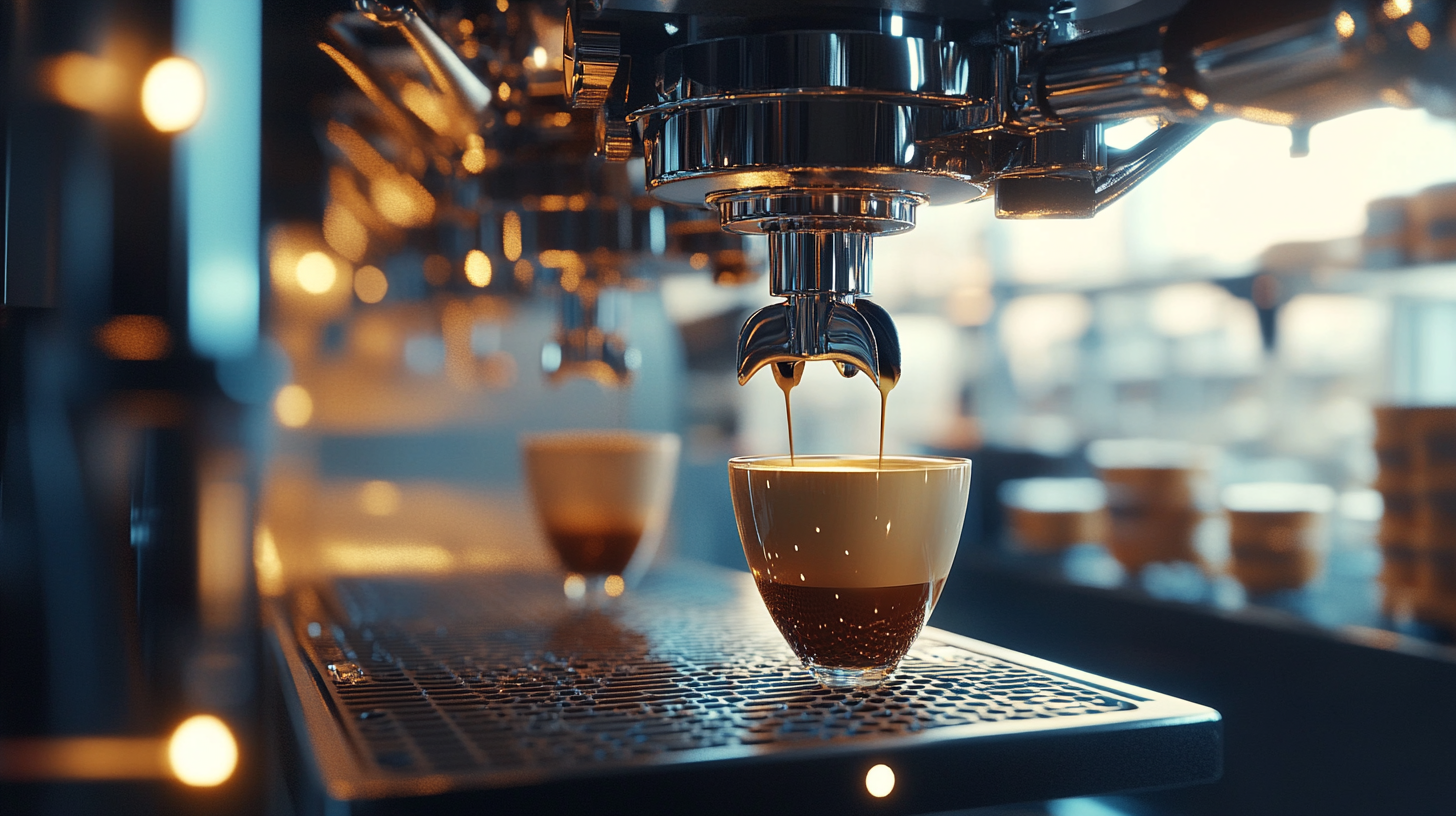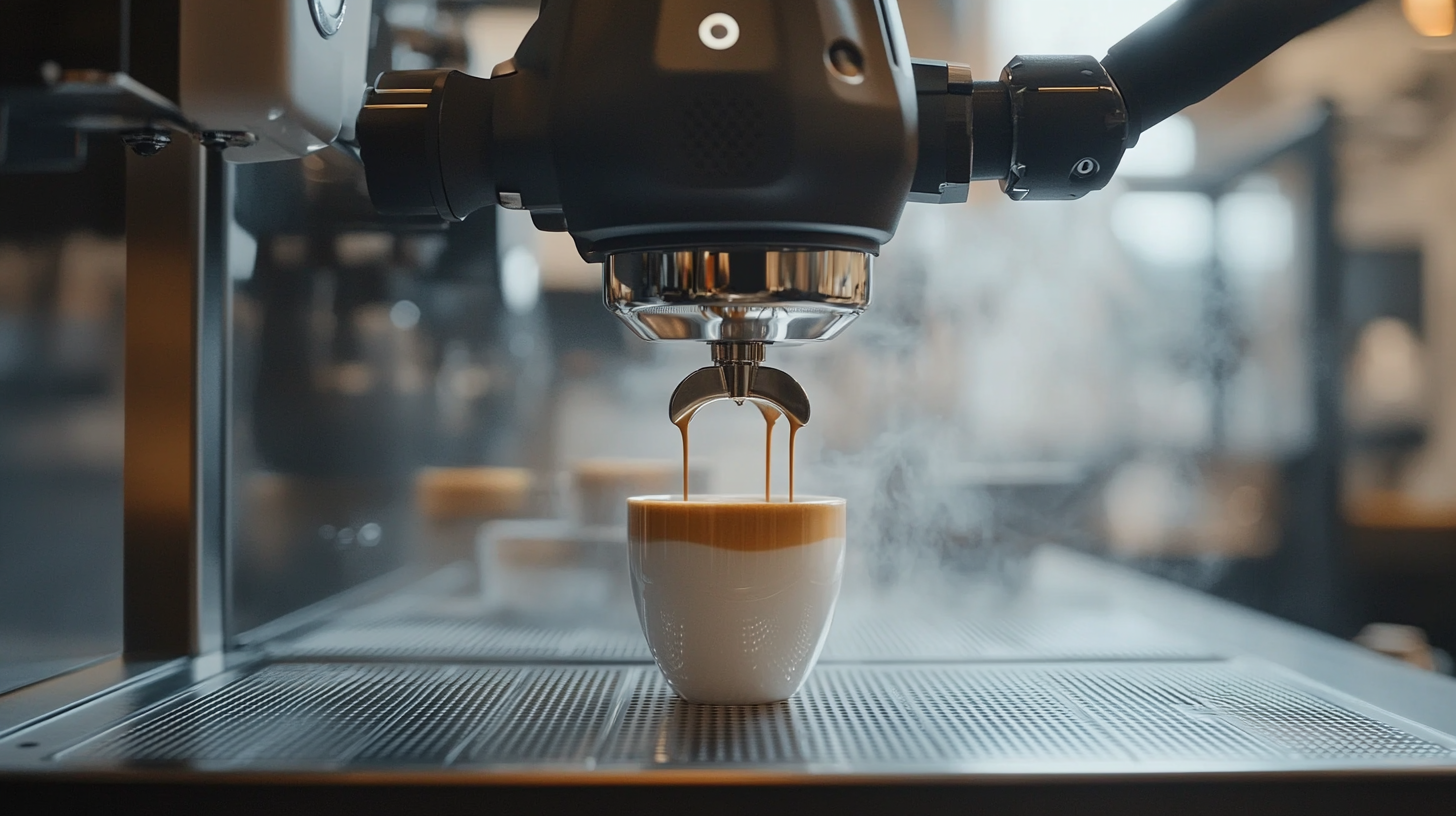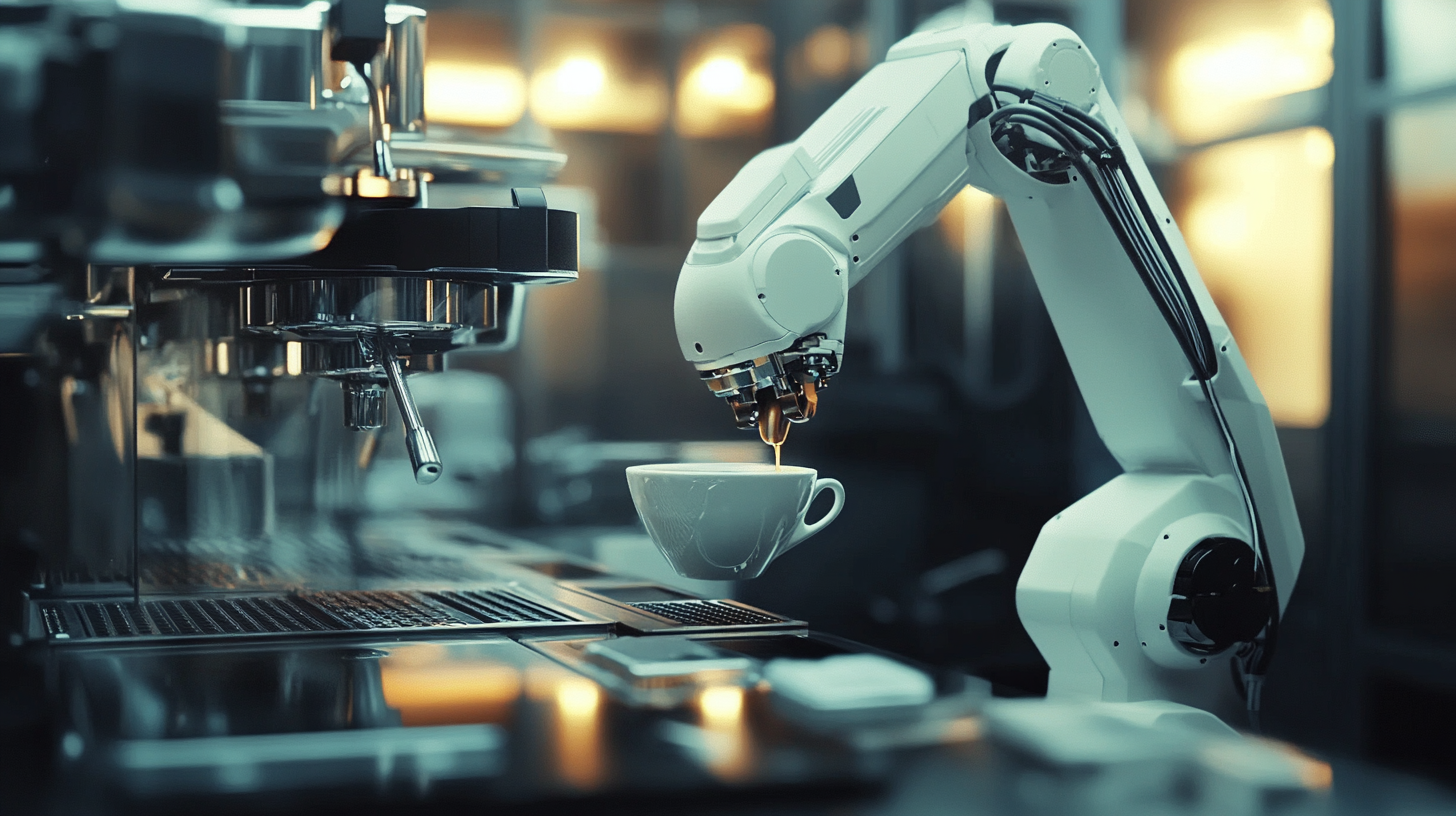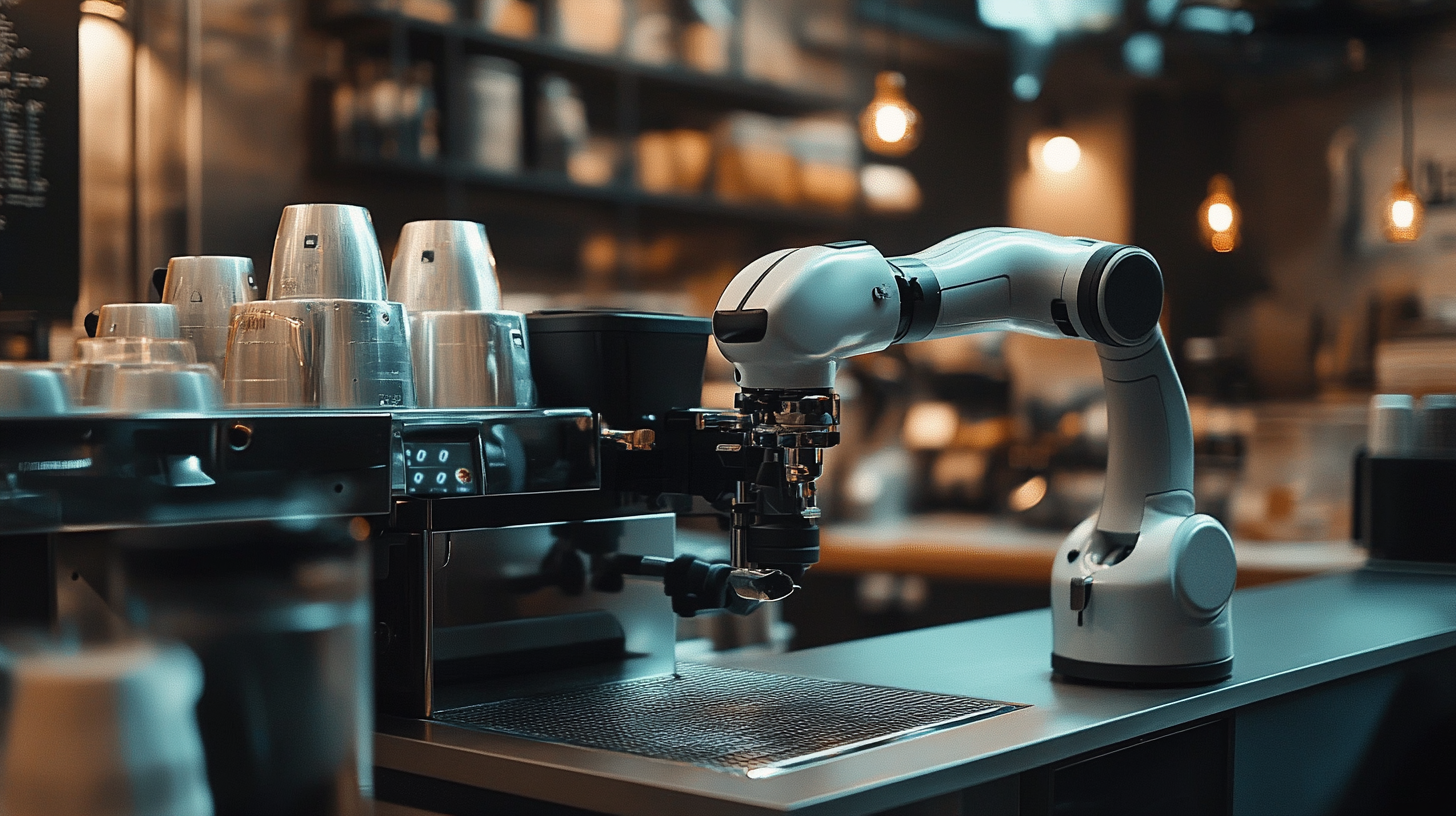Revolutionizing Beverage Industry How Robot Coffee Makers Enhance Efficiency and Quality
The beverage industry is undergoing a significant transformation, driven by advancements in technology, particularly in automation. As consumers demand higher quality and more consistent products, traditional coffee brewing methods are being challenged by innovative solutions. According to a recent report by the National Coffee Association, 79% of the American population consumes coffee, with a growing preference for specialty brews. This trend underscores the need for tools that can enhance efficiency while maintaining the quality that coffee aficionados expect. Enter the Robot Makes Coffee, a game-changing solution poised to redefine how coffee is prepared and enjoyed.
Robot coffee makers not only streamline the brewing process but also ensure precision and consistency that is often difficult to achieve through manual methods. A study by IBISWorld indicates that the coffee shop industry has experienced a steady annual growth rate of 2.2%, reaching a market size of $45 billion in the U.S. alone. As coffee businesses seek to optimize operations and cater to an increasingly discerning clientele, the integration of robotic technology is becoming vital. By harnessing the capabilities of robot coffee makers, establishments can improve service speed, reduce labor costs, and elevate the overall customer experience, transforming the landscape of the beverage industry as we know it.

The Rise of Robotics in the Coffee Shop Landscape
The Rise of Robotics in the Coffee Shop Landscape As the coffee shop landscape evolves, the integration of robotics is redefining efficiency and quality in beverage preparation. According to a report by QSR Magazine, the market for robotic coffee makers is projected to grow by 25% annually, driven by rising consumer demand for speed and consistency. Coffee enthusiasts are increasingly gravitating towards establishments that leverage technology, enhancing their overall experience while simultaneously reducing wait times and labor costs. Robotic coffee makers, such as those developed by companies like Cafe X and Spyce, are not merely novelties. They utilize advanced algorithms and AI to ensure each cup of coffee is brewed to perfection. A study conducted by Technavio highlights that automation in food and beverage preparation can increase productivity by up to 40%, allowing baristas to focus on customer engagement rather than repetitive tasks. This shift allows coffee shops to maintain high service standards, even during peak hours. Moreover, the rise of robotics in the coffee industry addresses a critical workforce challenge. With a growing shortage of skilled workers in the service sector, robotics offers a viable solution to maintain service quality and consistency. According to the National Coffee Association, a staggering 75% of coffee shop owners acknowledge that labor shortages impact their operations. By incorporating robotic systems, establishments not only alleviate staffing pressures but also elevate their brewing capabilities, ensuring that each customer receives a high-quality beverage tailored to their preferences.

Streamlining Coffee Production: The Role of Automation
The beverage industry, particularly coffee production, is experiencing a significant transformation through automation. According to a report by MarketsandMarkets, the global coffee machine market size is projected to reach USD 7.3 billion by 2026, growing at a CAGR of 7.2%. This growth is fueled by the increasing demand for high-quality coffee and the necessity for efficient production processes.
Robotic coffee makers play a pivotal role in streamlining production by optimizing various stages, from grinding beans to brewing. For instance, automation can reduce the brewing time by up to 30%, ensuring that beverages are not only quickly produced but also maintain consistent quality. A study by McKinsey & Company highlights that companies implementing automation in their processes have seen productivity gains of 20-25%. This remarkable efficiency is essential, especially in a market where consumer preferences are constantly evolving towards specialty and artisanal coffee.
Moreover, the integration of smart technology in coffee production enhances the ability to monitor and analyze brewing parameters, ensuring that each cup meets the desired taste profile. A survey by the Specialty Coffee Association found that 63% of consumers prefer brewing methods that maintain a high level of quality and precision, which robotic systems can reliably provide. By minimizing human error and optimizing workflow, these automated systems not only meet customer expectations but also drive sustainability efforts within the industry by reducing waste and energy consumption.

Ensuring Consistency: How Robots Maintain Beverage Quality
In the rapidly evolving beverage industry, maintaining consistency and quality is paramount. The integration of robotic coffee makers is transforming how beverages are prepared, ensuring that every cup meets the same high standards. According to a report by the International Journal of Food Science and Technology, robotic systems can reduce variability in beverage preparation by up to 30%, significantly enhancing product consistency.
One key advantage of robot coffee makers is their ability to precisely measure ingredients and control brewing parameters, such as temperature and brew time. A recent study by the Specialty Coffee Association emphasizes that slight variations in these factors can lead to significant differences in flavor profiles. Robots eliminate human error in these measurements, resulting in coffee that is consistently brewed to perfection.
Moreover, robots are equipped with advanced sensors and artificial intelligence that allow them to learn and adapt over time. The Food Automation and Robotics report indicates that this adaptability can enhance beverage quality by refining the brewing process based on customer preferences and feedback. For instance, if a particular coffee blend receives favorable reviews for its strength or flavor, the robotic system can adjust brewing parameters automatically to replicate that success in future batches.
As consumer expectations rise, the beverage industry must not only meet but exceed quality standards. Robotic coffee makers are paving the way for a future where beverage quality and consistency are guaranteed, allowing businesses to build stronger relationships with their customers through reliable and enjoyable products.

Enhancing Customer Experience through Robot Baristas
In the ever-evolving beverage industry, the rise of robot baristas is transforming the customer experience. These advanced coffee-making machines not only optimize the brewing process but also enhance the interaction between customers and their favorite cafés. By incorporating cutting-edge technology, robot baristas deliver a consistent quality of coffee that meets the high expectations of modern consumers. With precise brewing methods and automated techniques, these robotic assistants ensure that every cup is brewed to perfection, minimizing the variance that can occur with human baristas.
Beyond efficiency in preparation, robot baristas offer a unique and engaging customer experience. With sleek designs and user-friendly interfaces, customers can interact with the machines in an intuitive way, choosing their preferred flavors and styles at the touch of a button. This not only satisfies the craving for personalization in coffee orders but also creates an element of entertainment as clients watch their beverages being crafted in real time. The integration of AI features means that these machines can learn from customer preferences, thereby enhancing service by offering recommendations and customizations that elevate the coffee-drinking experience.
Moreover, the deployment of robot baristas in cafes can significantly reduce wait times. As the machines handle the heavy lifting of preparation and brewing, human staff members can focus on engaging with customers, ensuring that service remains friendly and helpful. This collaboration between human and machine maximizes operational efficiency while maintaining a welcoming environment for patrons. As robot baristas become more prevalent, customers are not just enjoying expertly crafted coffee; they are also participating in a revolutionary beverage experience that blends technology with the art of coffee making.
The Future of Coffee: Merging Technology with Tradition
The coffee industry is undergoing a significant transformation as technology merges with tradition, enhancing both efficiency and quality in coffee preparation. With the rise of fully automated coffee machines, such as innovative products that have recently been introduced, the landscape of coffee consumption is shifting from mere refreshment to a sophisticated lifestyle choice. This evolution is especially evident in China, where the coffee culture is expanding rapidly, with coffee exports from Yunnan Province alone reaching a staggering 30,000 tons in the first three quarters of 2024, marking a dramatic 371% year-over-year increase.
This technological renaissance is informed by the increasing demand for quality coffee, as customers seek unique experiences and flavors. Automated coffee machines and robotics are stepping in to meet these expectations, redefining how coffee is served and experienced in venues worldwide, including coffee shops and restaurants in New Zealand. The application of artificial intelligence in developing specialized coffee blends represents another intersection of technology and tradition, allowing for new tastes and preparations that were previously unattainable.
Moreover, the emergence of robots as baristas signifies a radical change in service delivery, as these machines are designed not only to provide efficiency but also to maintain superior quality in coffee-making. This integration of cutting-edge machines within the coffee industry hints at a future where high-tech solutions are harmoniously blended with traditional coffee craftsmanship, paving the way for an innovative coffee culture that could reshape consumer preferences globally.

